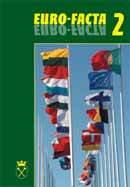Wielokulturowość, dialog, pogranicze
Multiculturalism, Dialogue, Borderland. Krzysztof Czyzewski’s Concept of the Ethos of the Borderland
Author(s): Szymon PawluśSubject(s): Politics / Political Sciences
Published by: KSIĘGARNIA AKADEMICKA Sp. z o.o.
Keywords: multiculturalism; dialogue; Borderland
Summary/Abstract: Multiculturalism, Dialogue, Borderland. Krzysztof Czyzewski’s Concept of the Ethos of the Borderland Focusing on Multiculturalism’s and Dialogue’s Theory In today’s world we can observe a considerable rise of society’s cultural diversity. Western societies are more and more internally differentiated and the word multiculturalism has become a part of our glossary for good. This phenomenon is, by many, seen as a threat to their own identity and integrity. A xenophobia, a fear of strangers appears. The alternative for this seems to be to blur diverse identities and efface differences between various groups. In connection with the emergence of these phenomena rise a need for a theoretical reflection aiming to resolve these problems. The matters of multiculturalism, dialogue and alterity call for explanation. The purpose of this article is to take into consideration dilemmas connected with the phenomenon multiculturalism by reaching into the fields of arts that are concerned with these problems – especially social sciences, philosophy of dialogue, and also Krzysztof Czyzewski’s conception. At first, the article reaches into the beginnings of the European reflection on the variety of cultures: deals with the issues of ethnocentrism and cultural relativism, examines the European culture’s way to dispose of its own ethnocentric closure and takes into consideration difficulties related with accepting a purely relativistic model of perceiving other cultures. Afterwards this work presents various conceptions and definitions of the term multiculturalism, as learning to know them helps to understand this phenomenon better. After outlining this background, the article reaches to the philosophy of dialogue, to seek, in the concepts of Buber, Rosenzweig, Levinas, and Tischner, answers to the dilemmas related to the necessity of living in modern, diversified communities.The article tries to show how they emphasize, in different ways, the need to respect the autonomy of the other, which can not be rejected during the meeting.The work ends with Czyzewski’s concept of the ethos of the borderland. It becomes like a buckle that closes all previous considerations, showing how to solve the dilemmas of identity and otherness in multicultural areas. Ethos of the borderland, a kind of code of life at the intersection of cultures, religions and nations, sets the path of mutual recognition of each other’s identity in order to build agreement. It is not afraid of differences, and instead of removing them, it affirms them, to erect above them a bridge of meeting. The ethos teaches to perceive the existence of different cultures as a chance of mutual enrichment of various others. Forgotten, but present through the ages in the lands of Central Europe, the ethos of the borderland, rediscovered by Czyzewski, seems to be the answer to many of the numerous questions that increasingly multicultural Europe asks itself.
Journal: Euro-Facta
- Issue Year: 2010
- Issue No: 2
- Page Range: 211-269
- Page Count: 59
- Language: Polish

